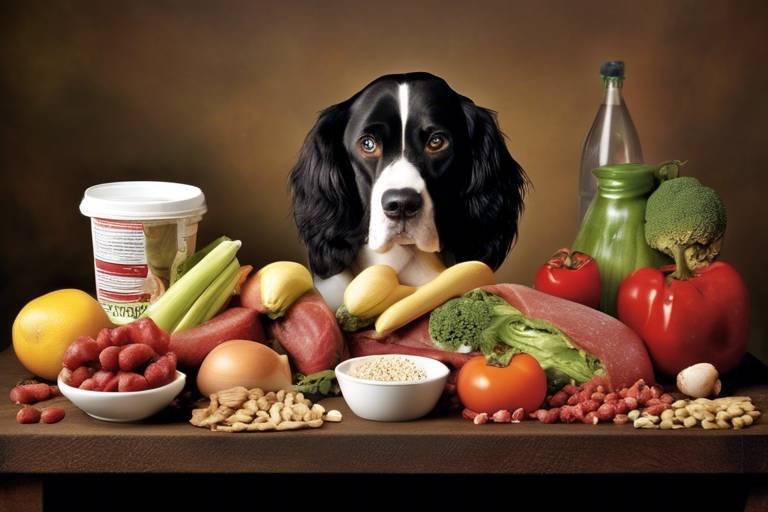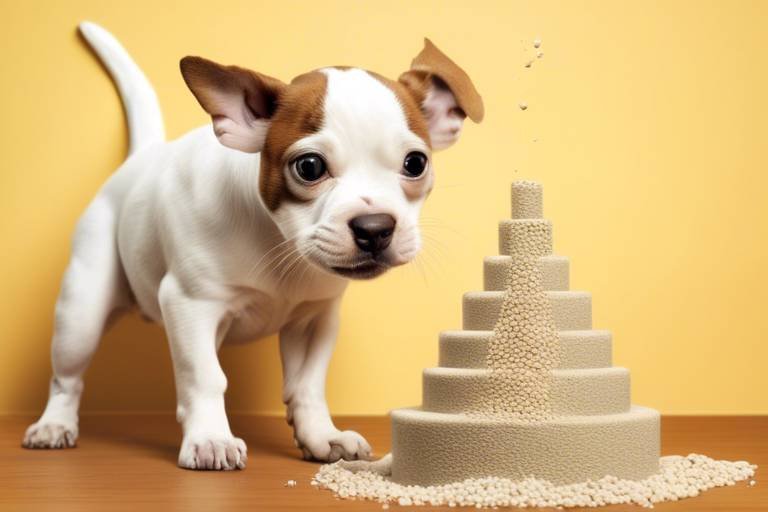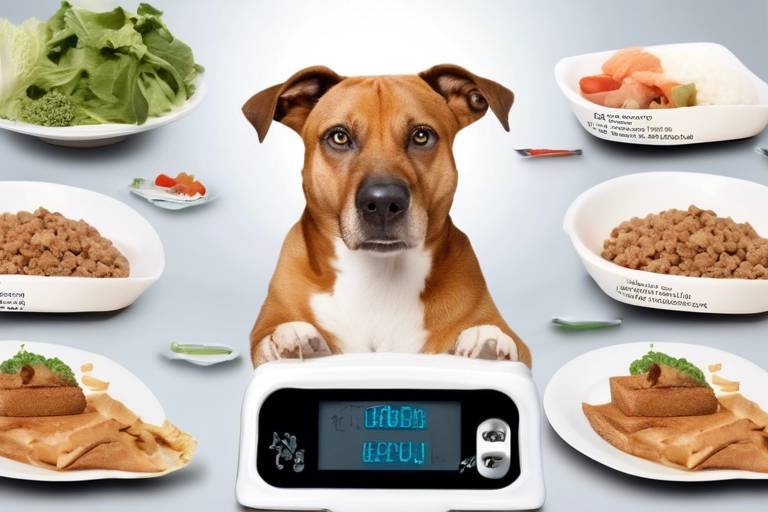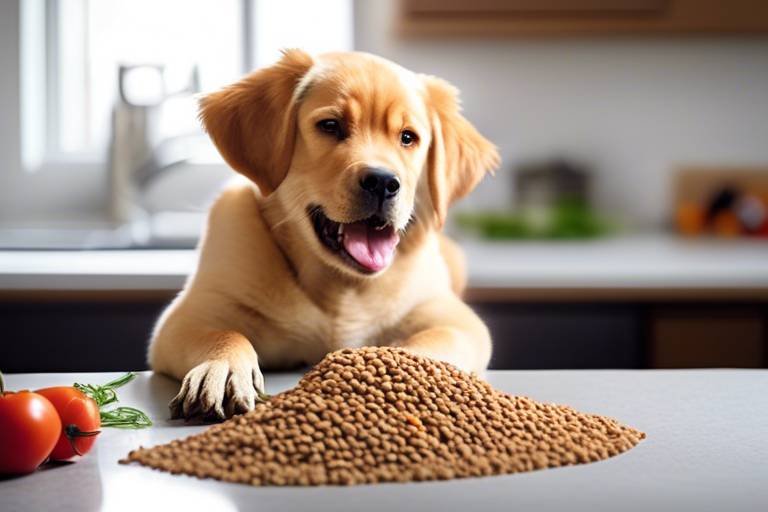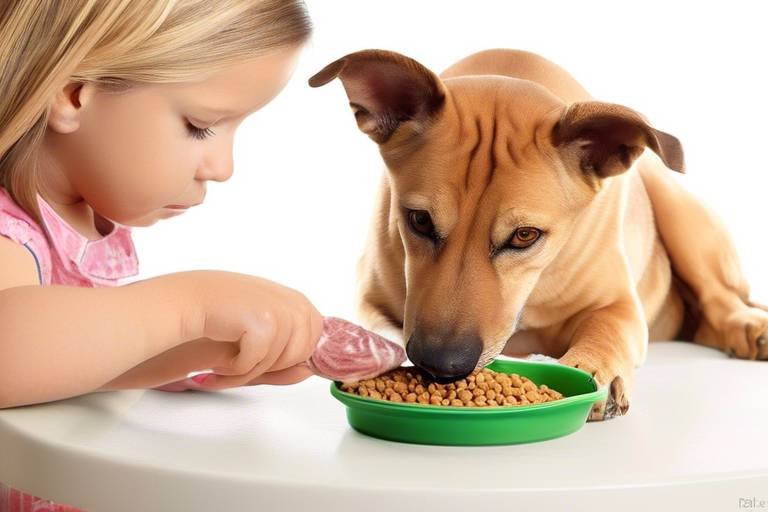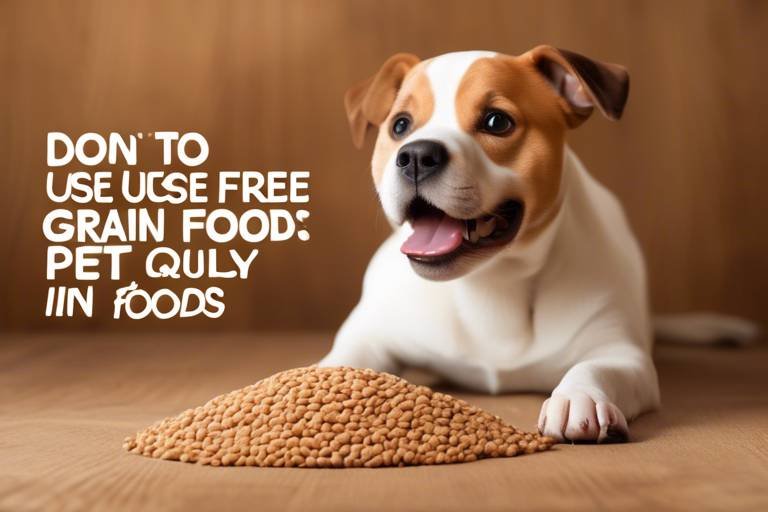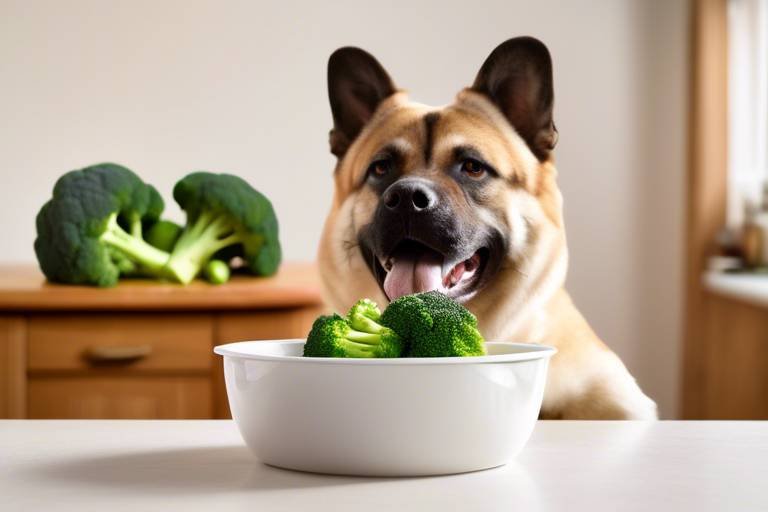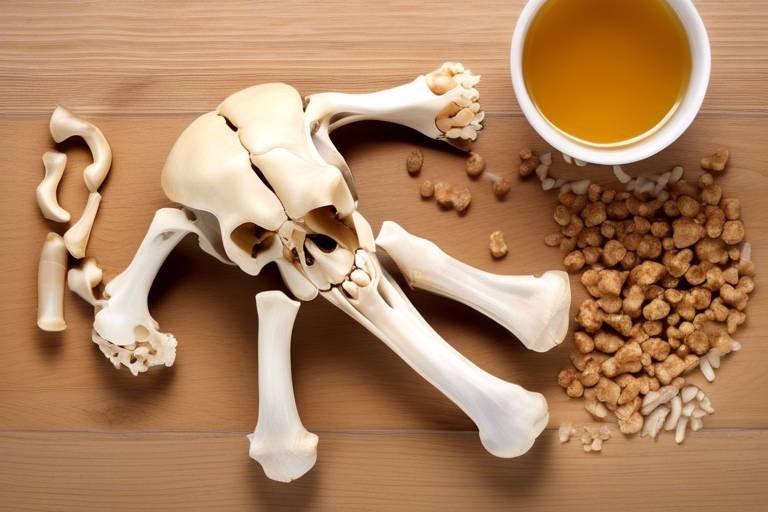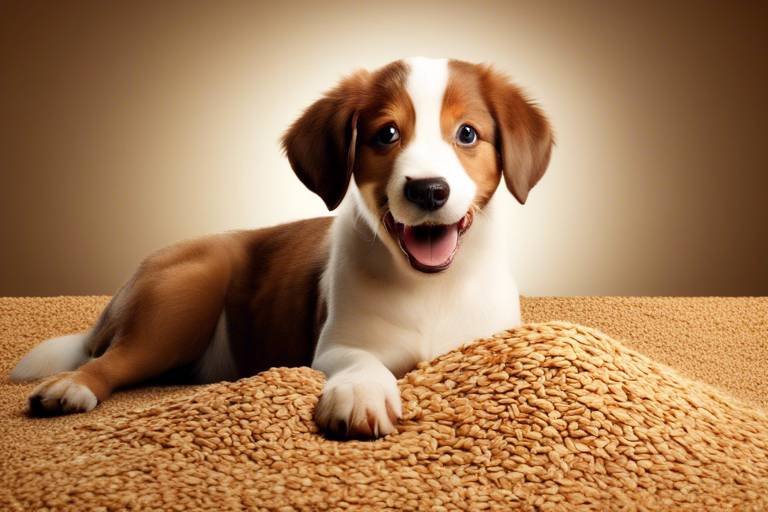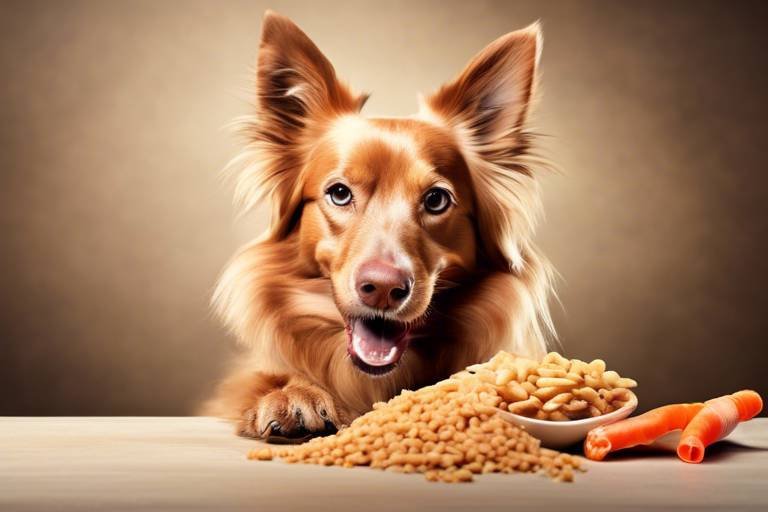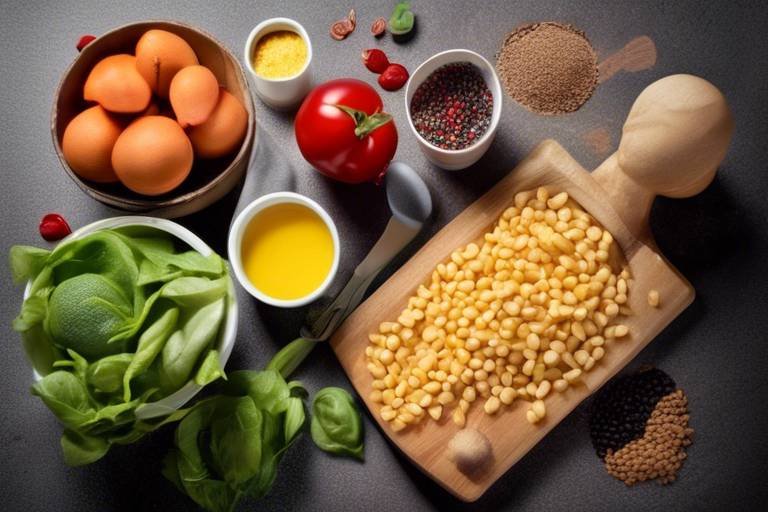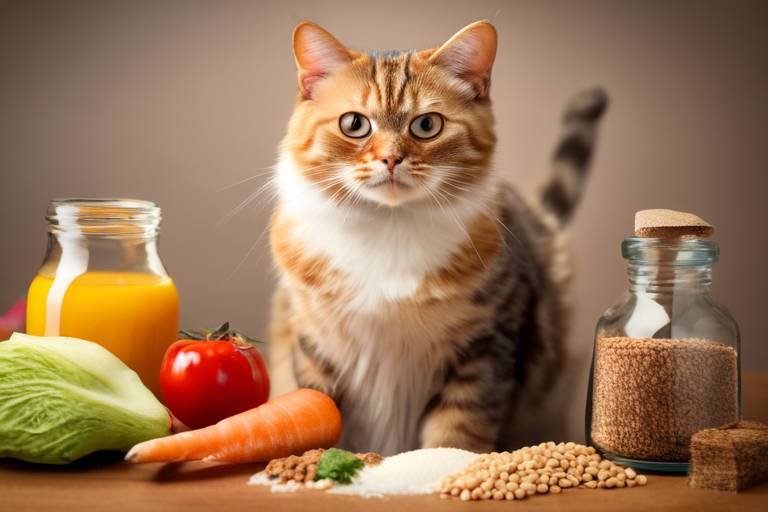The Importance of Nutrition for Show Dogs
When it comes to show dogs, nutrition is not just a matter of filling their bowls; it's a crucial element that can make or break their performance in the ring. Just like a finely-tuned athlete, a show dog requires the right balance of nutrients to showcase their best features and abilities. Proper nutrition influences not only their physical health but also their appearance, energy levels, and overall demeanor. Think of it as the fuel that drives their success, enabling them to strut their stuff with confidence and grace.
In the competitive world of dog shows, where every detail counts, the right diet can be the difference between a ribbon and a missed opportunity. A well-nourished dog is more likely to exhibit a shiny coat, vibrant energy, and a sturdy physique, all of which are critical for judges evaluating their potential. This article delves into the essential dietary components necessary for show dogs, emphasizing how to tailor their nutrition to meet the demands of competition.
To truly understand the importance of nutrition for show dogs, we must first explore the fundamentals of canine nutrition. Dogs, like humans, require a variety of nutrients to thrive. These include proteins, carbohydrates, fats, vitamins, and minerals. Each of these nutrients plays a specific role in maintaining health and vitality, particularly for dogs that are constantly under the spotlight. For instance, proteins serve as the building blocks of muscle, while carbohydrates provide the energy needed for those long days at the show. Without a well-rounded diet, a show dog might struggle to perform at their best, which is why it's essential to grasp the intricacies of canine nutrition.
As we move forward, we will highlight key nutritional components that are vital for show dogs and discuss practical feeding strategies to ensure they remain in peak condition. From pre-show nutrition to post-show recovery, every aspect of a dog's diet can be fine-tuned to enhance their performance and presentation. So, whether you're a seasoned handler or a newcomer to the world of dog shows, understanding the importance of nutrition is your first step toward success.
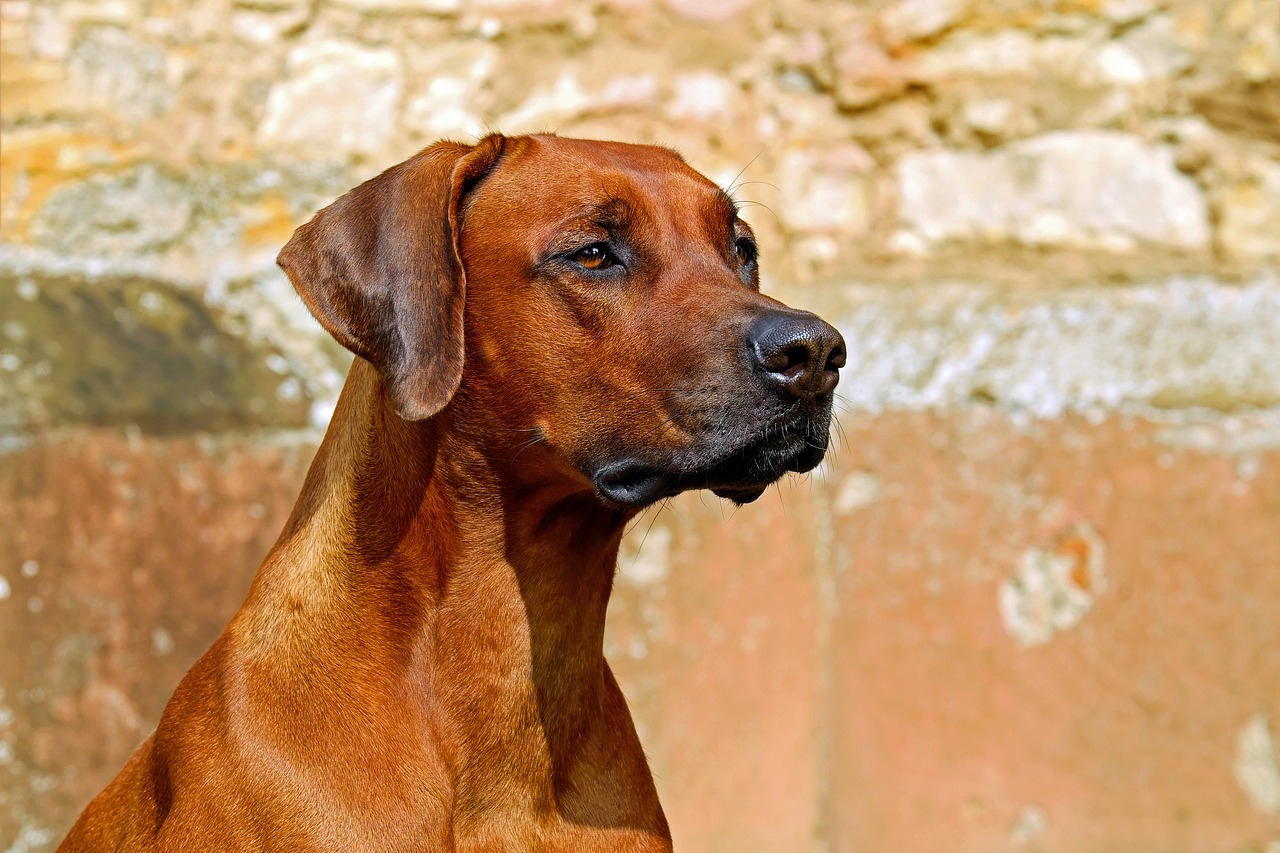
Understanding Canine Nutrition
When it comes to the world of show dogs, nutrition isn’t just a side note; it’s the backbone of their success! Just like a finely tuned race car needs the best fuel to perform, show dogs require a carefully balanced diet to showcase their full potential. But what exactly does "canine nutrition" entail? Well, it’s all about understanding the essential nutrients that keep our furry friends healthy, vibrant, and ready to strut their stuff in the ring.
At its core, canine nutrition is about providing dogs with the right mix of proteins, carbohydrates, fats, vitamins, and minerals. Each of these components plays a unique role in a dog’s health and performance:
- Proteins are the building blocks of muscle, crucial for strength and endurance.
- Carbohydrates serve as the primary energy source, fueling those high-energy moments during competitions.
- Fats provide a concentrated energy source and support overall skin and coat health.
- Vitamins and minerals are essential for various bodily functions, from immune support to bone health.
Understanding how these nutrients work together is key to formulating a diet that not only maintains a show dog’s appearance but also enhances its performance. For instance, a well-balanced diet rich in protein helps build and maintain muscle mass, which is vital for a dog’s agility and stamina during competitions. On the other hand, carbohydrates offer quick energy, allowing dogs to perform at their best without feeling sluggish.
Moreover, the quality of the ingredients matters just as much as the quantity. Dogs are omnivores, meaning they can derive nutrients from both animal and plant sources. However, the digestibility and nutritional profile of these sources can vary significantly. For instance, animal proteins are often more easily digested and provide a complete amino acid profile, which is essential for muscle development. In contrast, plant proteins can be less digestible and may require careful pairing to ensure all essential amino acids are consumed.
Another aspect to consider is the importance of hydration. Just like humans, dogs need access to fresh water to stay hydrated, especially during rigorous training sessions or competitions. Dehydration can lead to decreased performance and even health issues, so ensuring your show dog drinks enough water is crucial.
In summary, understanding canine nutrition goes beyond simply filling a bowl with kibble. It's about crafting a diet that supports your dog’s physical condition, enhances their appearance, and optimizes their performance in the show ring. With the right balance of nutrients and a focus on high-quality ingredients, your show dog will be well on its way to becoming a champion!
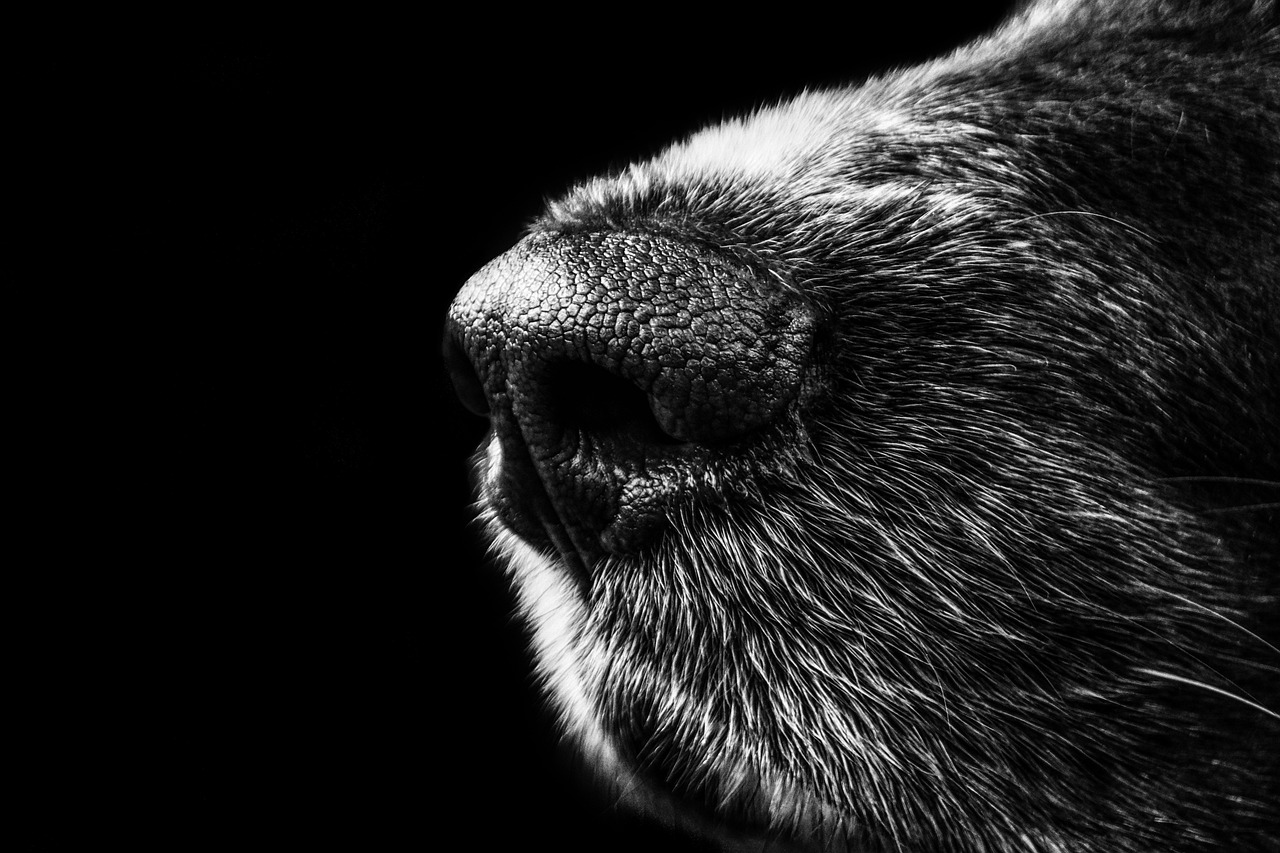
Key Nutritional Components
When it comes to show dogs, providing a well-rounded diet is not just a matter of preference; it's essential for their overall health, appearance, and performance. Just like a car needs the right fuel to run smoothly, show dogs require a balanced intake of key nutritional components to shine in the ring. These components include proteins, carbohydrates, fats, vitamins, and minerals. Each of these plays a crucial role in ensuring that our canine companions are not only fit but also look their absolute best.
To break it down further, let’s explore each of these vital nutrients and their importance:
| Nutrient | Function | Benefits for Show Dogs |
|---|---|---|
| Proteins | Building blocks of muscle, essential for growth and repair. | Supports muscle development, enhances coat quality. |
| Carbohydrates | Primary energy source. | Provides stamina and endurance during shows. |
| Fats | Concentrated energy source and aids in nutrient absorption. | Promotes healthy skin and coat, supports overall vitality. |
| Vitamins | Essential for metabolic processes. | Boosts immune system, aids in recovery, and enhances coat health. |
| Minerals | Support bone health, nerve function, and muscle contraction. | Contributes to strong bones and overall physical performance. |
Now, let’s dive a bit deeper into these components. Starting with proteins, they are crucial for muscle development and maintenance, especially for show dogs that need to exhibit strength and agility. It's important to choose high-quality protein sources, such as lean meats, fish, and eggs, which provide essential amino acids. But don’t forget, the timing and distribution of protein intake throughout the day can significantly impact muscle recovery and energy levels. Imagine fueling up your car before a long drive; it’s all about timing!
Next up are carbohydrates. Think of carbs as the gasoline that powers your dog’s energy levels. They are vital for providing the stamina needed during those long hours of training and competition. Opt for complex carbohydrates like sweet potatoes and brown rice, which not only give energy but also keep your dog feeling full and satisfied. Balancing carbs with proteins and fats is key to achieving optimal performance.
Now, let’s not overlook fats. These are often misunderstood but are incredibly important. Fats provide concentrated energy, which is essential for active show dogs. They also play a role in maintaining a shiny coat and healthy skin. Including sources of omega-3 and omega-6 fatty acids, like fish oil, can make a noticeable difference in your dog’s coat quality. Think of it as adding a touch of gloss to a beautifully polished car!
Lastly, we have vitamins and minerals. These micronutrients may be needed in smaller quantities, but they are no less important. Vitamins support metabolic processes and boost the immune system, while minerals are crucial for bone health and muscle function. A well-balanced diet that includes a variety of fruits and vegetables can help ensure your show dog gets all the necessary vitamins and minerals.
In summary, the right balance of these nutritional components is not just about keeping a dog healthy; it’s about enhancing their performance and appearance in the show ring. It’s like crafting a masterpiece; every brushstroke matters! So, as a responsible owner, make sure your show dog’s diet is as carefully curated as their training regimen.
- What are the best protein sources for show dogs? Lean meats, fish, and eggs are excellent protein sources.
- How often should I feed my show dog? It’s generally recommended to feed adult dogs twice a day, but consult your vet for personalized advice.
- Can I use supplements for my show dog? Yes, supplements can be beneficial, especially for vitamins and omega fatty acids, but always consult your vet first.
- Should I change my dog's diet before a show? Yes, adjusting their diet to include more easily digestible foods can help them perform better.
Protein: Building Blocks of Muscle
When it comes to show dogs, protein is the unsung hero of their diet. Imagine protein as the sturdy foundation of a house; without it, everything else can crumble. This vital nutrient is essential for building and maintaining muscle mass, which is crucial for a dog’s performance in the ring. Show dogs need to be in peak physical condition, and adequate protein intake plays a significant role in achieving that. But what exactly makes protein so important?
First off, protein is made up of amino acids, which are often referred to as the building blocks of life. There are 22 amino acids, and while dogs can produce some on their own, there are 10 essential amino acids that must come from their diet. These amino acids are pivotal for numerous bodily functions, including muscle repair, immune function, and even hormone production. For show dogs, the right balance of protein can make the difference between a lackluster performance and a show-stopping display.
Now, let’s dive into the sources of protein. High-quality animal proteins, such as chicken, beef, and fish, are often the best choices for show dogs. They not only provide a complete amino acid profile but are also more digestible compared to plant proteins. However, some dog owners may opt for plant-based proteins like peas or lentils, which can be beneficial when combined properly with other protein sources. Here’s a quick comparison of the two:
| Type of Protein | Digestibility | Amino Acid Profile | Effect on Coat |
|---|---|---|---|
| Animal Protein | High | Complete | Shiny & Healthy |
| Plant Protein | Moderate | Incomplete | Varies |
So, how much protein does a show dog actually need? Typically, a diet consisting of around 25-30% protein is recommended for active dogs, particularly those involved in rigorous activities like showing. However, it’s crucial to tailor the protein intake based on the dog’s size, age, and activity level. Too much protein can lead to unwanted weight gain, while too little can hinder muscle development.
Another important aspect to consider is the timing and distribution of protein intake throughout the day. Just like athletes need to refuel after a workout, show dogs also benefit from strategically timed protein consumption. Feeding smaller, more frequent meals can help maintain energy levels and promote muscle recovery. For example, consider dividing the daily protein intake into two or three meals, ensuring that your dog has a steady supply of nutrients available for muscle repair and energy replenishment.
In conclusion, protein is not just a dietary requirement; it’s a crucial element that shapes the physical prowess of show dogs. By understanding the significance of protein sources, recommended amounts, and the timing of intake, you can help your furry friend shine in the spotlight. After all, a well-nourished dog is not only a happy dog but also a champion in the making!
- What are the best sources of protein for show dogs?
High-quality animal proteins like chicken, beef, and fish are excellent choices, along with some plant proteins. - How much protein should a show dog consume?
Aiming for 25-30% protein in their diet is generally recommended for active show dogs. - Can I use plant-based proteins?
Yes, but ensure they are combined with animal proteins to provide a complete amino acid profile. - How often should I feed my show dog?
Feeding smaller, more frequent meals can aid in muscle recovery and maintain energy levels.
Animal vs. Plant Proteins
When it comes to fueling your show dog, the debate between animal-based proteins and plant-based proteins is a hot topic. Each type of protein has its unique benefits and drawbacks, and understanding these can help you make informed decisions about your dog's diet. Animal proteins, such as chicken, beef, and fish, are often considered the gold standard in canine nutrition. They provide a complete amino acid profile, which is crucial for muscle development and overall health. These proteins are highly digestible, meaning your dog can absorb and utilize them effectively, leading to better energy levels and improved coat quality.
On the other hand, plant proteins, found in sources like peas, lentils, and quinoa, can also play a significant role in a dog's diet, especially for those with certain dietary restrictions or allergies. While they may not offer the same complete amino acid profile as animal proteins, they can still contribute valuable nutrients and fiber. The key is to ensure that the combination of plant proteins provides a balanced amino acid profile. For instance, mixing different plant sources can yield a more complete protein, which is essential for maintaining your dog's vitality and performance in the show ring.
To give you a clearer picture, here's a quick comparison of the two:
| Type of Protein | Benefits | Considerations |
|---|---|---|
| Animal Proteins |
|
|
| Plant Proteins |
|
|
Ultimately, the choice between animal and plant proteins should be based on your dog's specific needs, health conditions, and performance goals. Consulting with a veterinarian or a pet nutritionist can help you tailor a diet that maximizes your show dog's potential. Remember, just like in a great performance, it's all about balance and finding what works best for your furry friend!
- Can I feed my show dog a vegetarian diet? Yes, but it requires careful planning to ensure all nutritional needs are met.
- How much protein does my show dog need? This varies by breed, age, and activity level. Generally, active dogs require more protein to support their energy needs.
- Are there any risks associated with high-protein diets? While protein is essential, overly high amounts can strain the kidneys, especially in older dogs.
Protein Timing and Distribution
When it comes to the competitive world of show dogs, can be the game-changer that sets your canine companion apart from the rest. Just like athletes need to fuel their bodies at the right times to maximize performance, show dogs also benefit greatly from a well-planned protein intake schedule. It’s not just about how much protein your dog consumes; it’s also about when they consume it. Think of it like a finely-tuned engine: every part needs to work in harmony for optimal performance.
To ensure that your show dog is at their best, you should aim to distribute their protein intake throughout the day. This means feeding them smaller, more frequent meals instead of one large meal. Why? Because this approach allows for better digestion and absorption of nutrients, which can lead to improved muscle recovery and energy levels. Imagine trying to run a marathon on a full stomach; it just doesn’t work! Instead, by spreading out their protein intake, you can help your dog maintain consistent energy levels and muscle tone.
One effective method is to divide their daily protein requirement into several meals. For instance, if your dog requires 30 grams of protein per day, consider giving them 10 grams in each of three meals. This not only keeps their energy levels stable but also aids in muscle repair, especially after those demanding practice sessions or competitions. A simple table can illustrate this distribution:
| Meal Time | Protein Amount (grams) |
|---|---|
| Breakfast | 10 |
| Lunch | 10 |
| Dinner | 10 |
Additionally, consider the timing of these meals in relation to your dog's activity schedule. For example, if your dog has a training session in the morning, it’s wise to provide a protein-rich meal about 1-2 hours before they hit the field. This timing allows their body to utilize the protein for energy and muscle support during the session. Post-training, a meal rich in protein can aid in muscle recovery, helping to repair any wear and tear that occurred during the exercise.
In conclusion, are crucial components in a show dog's diet. By strategically planning their meals, you can enhance their performance, recovery, and overall health. Remember, a well-fed dog is a happy dog, and a happy dog is a winning dog!
- How much protein does my show dog need? The amount varies based on the dog's size, age, and activity level, but a general guideline is about 20-30% of their diet should come from protein sources.
- Can I use protein supplements for my show dog? Yes, but consult with a veterinarian to ensure that any supplements are appropriate for your dog's specific needs and do not exceed their daily protein requirements.
- What are the best sources of protein for show dogs? High-quality animal proteins like chicken, beef, and fish are excellent choices. Plant-based proteins can also be included but should be balanced with animal sources for complete amino acid profiles.
Carbohydrates for Energy
When it comes to fueling our furry friends, carbohydrates are often the unsung heroes. Think of carbohydrates as the gasoline that keeps the engine running smoothly. For show dogs, who require bursts of energy for their performances, having the right balance of carbs in their diet is absolutely essential. These nutrients not only provide energy but also support overall health and vitality. It's crucial to understand that not all carbohydrates are created equal; some offer quick energy, while others provide sustained endurance.
There are two main types of carbohydrates: simple carbohydrates and complex carbohydrates. Simple carbs, like those found in fruits and some grains, are quickly digested and provide immediate energy. On the other hand, complex carbs, such as whole grains and vegetables, take longer to break down, offering a more gradual release of energy. For show dogs, a combination of both types can be beneficial, ensuring they have the energy needed for both short bursts of activity and longer periods of exertion.
To illustrate the importance of carbohydrates in a show dog's diet, consider the following table that outlines various carbohydrate sources and their benefits:
| Carbohydrate Source | Type | Benefits |
|---|---|---|
| Brown Rice | Complex | Provides sustained energy and is easy to digest. |
| Sweet Potatoes | Complex | Rich in vitamins and minerals, great for energy and skin health. |
| Oats | Complex | High in fiber, helps with digestion, and provides steady energy. |
| Honey | Simple | Quick energy boost, great for pre-show snacks. |
| Fruits (Bananas, Apples) | Simple | Loaded with vitamins and quick energy, perfect for training sessions. |
When planning a diet for show dogs, it's vital to consider not just the quantity of carbohydrates but also their quality. Opting for whole, unprocessed sources can lead to better energy levels and overall health. Additionally, the timing of carbohydrate intake can significantly impact a dog's performance. For example, feeding a dog a meal rich in carbohydrates a few hours before a show can help ensure they have the energy needed to strut their stuff in the ring. Conversely, providing quick-digesting carbs right before a performance can offer an immediate energy boost when it’s most needed.
In conclusion, carbohydrates are a critical component of a show dog's diet. They not only provide the necessary energy for physical activity but also play a role in maintaining overall health. By choosing the right types of carbohydrates and timing their intake effectively, dog owners can help their show dogs perform at their very best while looking fabulous in the ring.
- What are the best sources of carbohydrates for show dogs? Whole grains, sweet potatoes, and fruits are excellent sources of carbohydrates that provide both energy and nutrients.
- How much carbohydrate should I include in my show dog's diet? The amount can vary based on the dog's activity level, but a balanced diet typically includes around 30-50% carbohydrates.
- Can too many carbohydrates be harmful to my dog? Yes, excessive carbohydrates can lead to weight gain and other health issues. It’s essential to maintain a balanced diet.
- When should I feed my show dog carbohydrates for optimal performance? It's best to provide a meal rich in carbohydrates a few hours before a show, along with quick-digesting carbs right before the event.
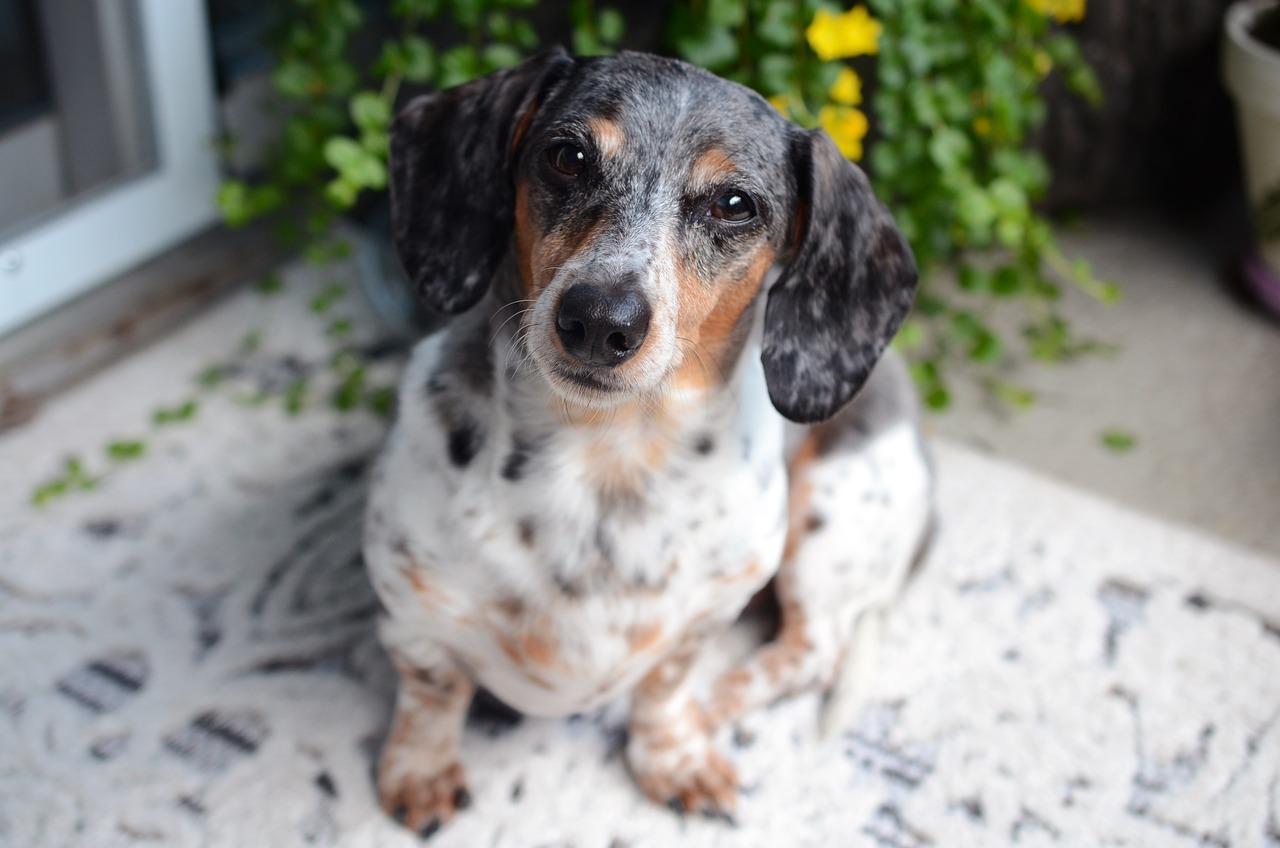
Feeding Strategies for Show Dogs
Feeding show dogs is not just about filling their bowls; it’s about crafting a strategic plan that aligns with their unique needs. These dogs are athletes in their own right, and just like human athletes, they require a carefully balanced diet to maintain peak performance and stunning appearance. The right feeding strategies can make all the difference when it comes to their health and presentation in the ring. So, what should you consider when planning your show dog's meals?
First off, meal frequency plays a crucial role in a show dog's diet. Unlike the average pet that might thrive on two meals a day, show dogs often benefit from multiple smaller meals. This approach helps to stabilize energy levels and supports better digestion. Think of it like fueling a high-performance engine; consistent, smaller amounts of fuel can keep the engine running smoothly without overwhelming it. A common strategy is to feed show dogs three to four times a day, especially leading up to a competition.
Portion control is another essential aspect of feeding strategies. It’s important to measure out food portions to prevent overfeeding, which can lead to unwanted weight gain and sluggishness. A well-defined feeding schedule should be based on the dog's size, age, and activity level. For instance, a large breed show dog might require more food than a smaller breed, but the key is to maintain an ideal body condition score. This can be visually assessed by checking the dog’s waist and ribs; you want to feel the ribs without them being overly visible.
Hydration is often overlooked but is equally important. Show dogs must have access to fresh, clean water at all times. Dehydration can lead to fatigue and poor performance, so it’s crucial to keep their hydration levels optimal. During shows, consider offering water at regular intervals, especially if the dog is active or the weather is warm. You can even add a splash of low-sodium chicken broth to their water for a little extra flavor that might encourage them to drink more.
Now, let’s talk about pre-show nutrition. In the days leading up to a competition, fine-tuning your dog's diet can help them shine in the ring. Increasing protein intake can support muscle development, while slightly reducing carbohydrates can help maintain a lean physique. Some owners choose to add supplements that promote coat health, ensuring their dog looks as fabulous as they feel. It’s like putting on your best outfit before a big event; you want everything to be perfect!
After the show, don’t neglect post-show recovery. This is a critical time for your dog to replenish lost nutrients and recover from the physical exertion. Incorporating high-quality protein sources, such as chicken or fish, can aid in muscle repair. Additionally, consider adding omega-3 fatty acids to their diet, which can help reduce inflammation and support overall health. Just like athletes need to refuel after a big game, your show dog deserves the same attention to their recovery.
In conclusion, feeding strategies for show dogs should be as dynamic and thoughtful as the dogs themselves. By focusing on meal frequency, portion control, hydration, and tailored pre- and post-show nutrition, you can ensure your canine companion not only looks their best but also feels their best. After all, a well-fed dog is a happy dog, and a happy dog is more likely to strut their stuff with confidence in the show ring!
- How often should I feed my show dog? It's typically recommended to feed show dogs three to four times a day for optimal energy levels and digestion.
- What should I include in my dog's diet leading up to a show? Focus on increasing protein intake and consider adding supplements for coat health.
- How can I ensure my dog stays hydrated during a show? Provide access to fresh water at all times and consider adding flavor to encourage drinking.
- What is the best way to help my dog recover after a show? Incorporate high-quality protein sources and omega-3 fatty acids to assist in muscle repair and overall health.
Pre-Show Nutrition
When it comes to preparing your show dog for that big day, is nothing short of crucial. Just like athletes need to fuel their bodies properly before a big game, your canine companion requires a carefully tailored diet to ensure they shine in the ring. The goal here is to have your dog at their absolute best—both physically and mentally—when the spotlight hits. So, what should you consider when planning their meals in the days leading up to the show?
First and foremost, timing is essential. You want to make sure that your dog is not only well-fed but also has adequate time to digest before stepping into the ring. A good rule of thumb is to feed your dog their last meal at least 4-6 hours before the show. This allows for proper digestion, preventing any discomfort or bloating that could affect their performance.
Next, let’s talk about the quality of food. It's tempting to stick with what you know, but this is the time to amp up their nutrition. Consider incorporating high-quality proteins and easily digestible carbohydrates into their diet. Think of it as giving your dog a gourmet meal before the big event. Foods rich in omega-3 fatty acids can also help enhance their coat’s shine, making them look even more stunning in the show ring.
In the days leading up to the show, you might want to adjust their feeding schedule slightly. Instead of two larger meals, consider breaking it down into smaller, more frequent meals. This can help maintain energy levels and keep their metabolism active. For example, you could switch to feeding three to four smaller meals throughout the day. This approach not only keeps energy steady but also helps prevent any last-minute digestive issues.
Hydration is another key element that often gets overlooked. Make sure your dog has constant access to fresh water, especially in the days leading up to the show. Dehydration can lead to fatigue and decreased performance, which is the last thing you want when the competition is fierce. You might also consider adding electrolyte supplements to their water a day or two before the show to ensure they are fully hydrated and energized.
Lastly, don't forget to consider any supplements that could give your dog an extra edge. Omega-3 fatty acids, probiotics, and joint supplements can all contribute to your dog's overall well-being and performance. However, it's crucial to introduce any new supplements a few weeks prior to the show to avoid any adverse reactions. Think of it as a little boost to their already stellar routine!
In summary, pre-show nutrition is about creating a well-rounded plan that focuses on quality, timing, and hydration. By paying attention to these details, you're setting your dog up for success in the ring. Remember, a well-nourished dog is not only healthier but also more confident, which can make all the difference when it comes to competing.
- What should I feed my dog before a show? Focus on high-quality proteins and easily digestible carbohydrates. Foods rich in omega-3s can enhance coat shine.
- How long before the show should I feed my dog? It's best to feed them at least 4-6 hours before the show to allow for proper digestion.
- Can I give my dog supplements before a show? Yes, but introduce them at least a few weeks prior to avoid any adverse reactions.
- How important is hydration? Extremely important! Ensure your dog has access to fresh water and consider electrolyte supplements.
Post-Show Recovery
After the thrill of competition, the phase is critical for show dogs. Just like athletes, these canines need proper care to bounce back from the exertion of the event. Recovery isn't just about rest; it's about replenishing the body with the right nutrients to ensure they return to their best selves. Think of it as a pit stop for a race car; it’s essential for maintaining peak performance.
One of the first things to consider in a post-show recovery plan is hydration. Dogs can lose a significant amount of fluids during a show, especially if they’re under bright lights or in a warm environment. Providing fresh water immediately after the event is vital. You might also consider offering an electrolyte solution to help restore balance, similar to how athletes consume sports drinks to rehydrate and recover.
Next, let’s talk about nutrition. The food you provide should be rich in proteins and carbohydrates. Proteins are the building blocks necessary for muscle repair. After a show, your dog’s muscles might be fatigued, and they need quality protein to recover. Aim for a meal that includes lean meats such as chicken or fish, which are excellent sources of protein. Additionally, incorporating carbohydrates helps replenish glycogen stores depleted during the competition. Foods like sweet potatoes or brown rice can be beneficial.
Consider implementing a post-show meal plan that looks something like this:
| Time | Food Type | Purpose |
|---|---|---|
| Immediately After | Water/Electrolyte Solution | Rehydration |
| 1 Hour Post-Show | High-Quality Protein Source | Muscle Repair |
| 2-3 Hours Post-Show | Carbohydrate-Rich Meal | Energy Restoration |
In addition to food and hydration, supplements can play a significant role in recovery. Omega-3 fatty acids, for example, are known for their anti-inflammatory properties. They can help reduce muscle soreness and promote joint health, making them an excellent addition to your dog’s diet after a show. Always consult with your veterinarian before introducing new supplements to ensure they are appropriate for your dog’s specific needs.
Lastly, don’t underestimate the power of rest. Dogs, much like humans, need time to recover physically and mentally. Ensure your show dog has a comfortable, quiet space to relax away from the hustle and bustle. Gentle walks can also help maintain mobility without overexerting them. Remember, the goal is to have your dog feeling rejuvenated and ready to shine in the next competition!
- How soon should I feed my dog after a show? It's best to wait about an hour to allow them to hydrate and settle down before offering food.
- Can I give my dog supplements after a show? Yes, but consult your veterinarian to determine the right supplements and dosages for your dog's recovery.
- What types of food are best for post-show recovery? Look for high-quality protein sources and carbohydrate-rich foods like sweet potatoes or brown rice.
Frequently Asked Questions
- What is the most important nutrient for show dogs?
While all nutrients play a crucial role, protein is often considered the most important for show dogs. It helps build and maintain muscle, which is essential for their performance and appearance in the ring. Without adequate protein, your dog may struggle to present its best self during competitions.
- How often should I feed my show dog?
Feeding frequency can vary, but many experts recommend two to three meals a day for show dogs. This helps maintain energy levels and supports muscle recovery. It's important to find a routine that works for your dog and stick to it for consistency.
- Are there specific foods to avoid for show dogs?
Yes, certain foods can be detrimental to your show dog's health and appearance. Avoid foods high in fillers, artificial additives, and excessive grains. These can lead to poor coat condition and lack of energy. Focus on high-quality, balanced diets that provide the necessary nutrients.
- How can I ensure my dog is hydrated before a show?
Hydration is key! Always provide fresh, clean water and consider offering a wet food option leading up to the show. Monitor your dog's water intake, especially during training and competition days, to ensure they're well-hydrated.
- What should I feed my dog after a show?
Post-show nutrition is vital for recovery. Focus on a diet rich in proteins and carbohydrates to help with muscle repair and replenish energy stores. Consider adding supplements like omega fatty acids for coat health and overall well-being.
- Can I use commercial dog food for my show dog?
Absolutely! Many commercial dog foods are formulated to meet the nutritional needs of active dogs. Just make sure to choose a high-quality brand that lists meat as the first ingredient and is free from unnecessary fillers.
- How do I know if my dog's diet is effective?
Monitor your dog's energy levels, coat condition, and overall health. If your dog is vibrant, has a shiny coat, and maintains a healthy weight, you’re likely on the right track. Regular vet check-ups can also help assess their nutritional status.
- Is it necessary to consult a veterinarian about my dog's diet?
Yes, consulting a veterinarian is highly recommended, especially for show dogs. They can provide tailored advice based on your dog's specific needs, health status, and competition requirements, ensuring your furry friend is at their best.

